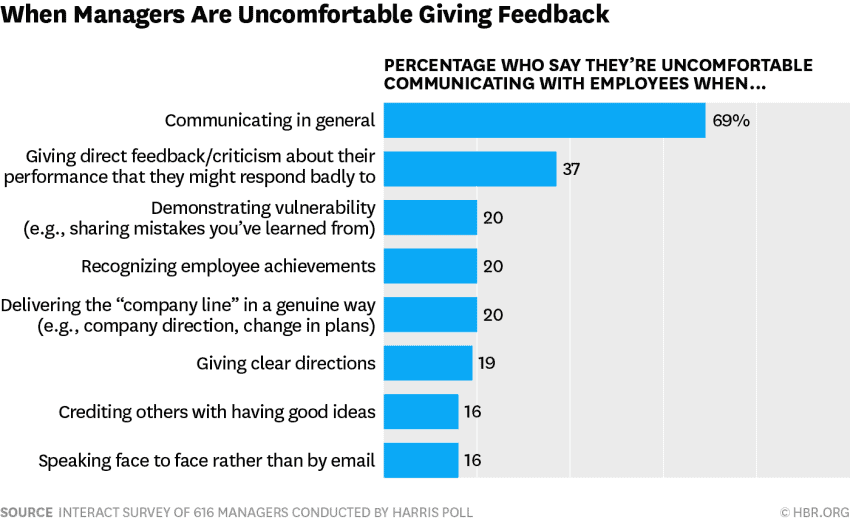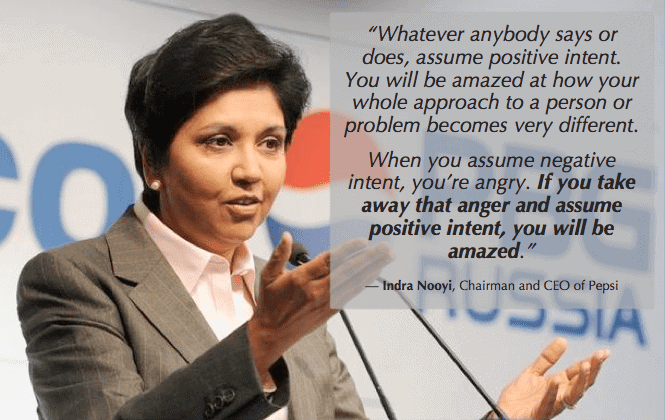"Before you criticize someone, you should walk a mile in their shoes. That way when you criticize them, you are a mile away from them, and you have their shoes." - Jack Handey
Most people have strong feelings about their managers. You either love working for them, or you find aspects of them very difficult.
If you've never done their job, you probably don't have the full picture on why they are the way they are. You don't know the real facts about managers that influence what they do.
A little empathy goes a long way...
Remember: Being a manager is a career change. It's a big challenge to transition to, especially from the initial leap form individual contributor.
Going from just worrying about your own work and responsibilities to getting other people to work together is a steep challenge. Then, as you get promoted, you are presented with new challenges again. Every time, new skills must be learned, old habits broken, and new relationships forged.
The work of an individual contributor looks very different from a manager's, and both are important to the success of a team and organization.
That's why today we're tackling the facts about managers they wish their teams knew about their jobs. If you walk away with a little more empathy for your manager, we've done our job.
Table of Contents:
- Your manager gets little to no training
- They're not rewarded for managing you well
- Your manager is probably spread too thin
- Their job is a moving target
- They wonder just as much about you as you do about them
- Most managers care more than you realize

6 Facts About Managers You Need to Know to Better Work with Yours
Ever have a friend who is having a bad day? Of course we all have. They may be in a bad mood and you may feel some of it.
It's nothing you did, it's the fight, breakup, bad news, job problems, etc that got to them. However, because you know them, you cut them some slack, forgive them, or even help them deal with the root issue.
Equally, when they're in a great mood, you see how that shines through. A promotion, raise, big deal closing, new relationship, big life moment, etc can all put someone in a great mood that brings a positive attitude to your encounter with them.
Your managers are human, too. They experience the same things. Unfortunately, you often lack the same context your friends provide.
Specific to their jobs, there's a few facts about managers that can help you better understand why certain things happen when they're managing you. A little empathy goes a long way.

1) Your manager gets little to no training
The first time you try something, how good are you at it? If you're like most people, you'll struggle.
Becoming a manager is a major change, and yet too often managers get very little support and training. This makes the learning curve all the more steep for them.
Unfortunately, you as their direct report suffer because of this.
Conventional training isn't likely to help, either.
A day or two of training set up by HR can start out sounding great. It covers many important concepts, and you're left with a feeling of a excitement.
Then, it's all forgotten.
There's a name for this: the Ebbinghaus Forgetting Curve.

It turns out, we have short memories. Anything you learn in a jam-packed day of training is soon forgotten.
It's only through repeated practice that you can hope to retain new learning. Yet, when you miss a day or two of work for training, you're taken out of your regular environment you'd apply it in.
When you return to your desk, it may not be so simple to actually apply what you learned in your workplace and culture. You're also slammed with work and email to catch up on, making it even less likely you'll start applying it.
Despite the best of intentions, it's unlikely your manager is well prepared for every challenge they'll face in their job.
How you can help: Give them the benefit of the doubt if they handle something less than ideally. Try to give them constructive feedback and context, so they can understand and improve the situation going forward.

2) They're not rewarded for managing you well
While Mark C Crowley makes a great point about the reward for being a great leader, most companies do not care. If you hit your number, ship the product, meet the deadline, that's all that matters.
Silicon Valley in particular is grappling with this problem lately. Scandals at multiple companies have shown that if you're good enough at hitting or exceeding numbers, you can get away with being a terrible, harassing manager, or worse.
Unfortunately, being a great manager in most companies will get you a high five, but not much else.
Even at Google, famous for their good manager survey, the Upward Feedback Survey, it's been a bonus, not core to the job.
As explained privately to me by some current and former employees, top scoring managers are invited on a special trip, but the scores are not part of a manager's performance evaluation. Only recently have they started experimenting with surfacing the number when deciding compensation, performance, and promotions.
How you can help: If your manager does something you like, THANK THEM! It will make their day and they might just reciprocate; it's not just team members that appreciate praise, managers need to hear it, too.

3) Your manager is probably spread too thin
Most managers have more on their plate than they can handle. They were promoted for being great at getting things done.
This is also often synonymous with saying yes to too many things. They have a manager who rates their performance, too, which sets them up to be asked to do a lot.
When you're overwhelmed, it's easy for things to slip. Whether by forgetting, or running out of time, it's easy for your manager to fail to keep some promises with you. It probably wasn't personal.
Your manager is overworked.
In a study by the Center for Creative Leadership, they found leaders are constantly working:
"Professionals, managers, and executives who carry smartphones for work report interacting with work a whopping 13.5 hours every workday, and 72 hours per week including weekend work."
That's a lot of time being online and trying to help your team and company succeed. The downside of this is that always being on the go can cause you to miss the forest for the trees; some of the best ideas come when managers take a break, yet many never do.
How you can help: If you see bottlenecks at work, tell them. If you think they're missing something, try to be helpful in bringing it to their attention in a constructive way. Most importantly, if something is important to you, make sure they write it down.

4) Their job is a moving target
When you're an individual contributor, much of what you do follows a linear path; you learn a skill and go deeper and deeper, becoming more and more valuable. You may pick up new tactics, languages, or tools, but they all fit together.
When you're a manager, the rules are constantly changing on you. Each promotion a manager receives requires totally new skills to succeed.
What works when you are managing individual contributors is very different than navigating a mid-level leadership role with multiple stakeholders and the pressure to develop the managers under you.
Compounding things, the higher you rise in an organization, the less time your boss usually makes for you. What time they do have, is usually focused on reports to them, not mentoring or coaching. This is a major reason the Peter Principle is so prevalent in the workforce.

A manager's job gets harder even without a promotion.
Imagine you're on a team of 3. You and 2 colleagues work with your manager to deliver on your responsibilities.
With 3 of you, it's easy to stay on the same page and get things done. Your manager also has plenty of time to work with and coach you.
Then, your manager hires 4 more people as demand rises for your company's product. Everything changes.
As you can see in the lines of communication image above, your team went from 3 lines to 21. Your manager has to navigate all of that.
Right when there are more people to work with, more challenges to tackle, and more work to be done, your manager has less time for you and everyone else.
Just because your manager was great at managing 3 people does not mean they'll thrive with 7 to 10 people on their team (the max experts recommend anyone manage). In fact, they will have to significantly change their approaches to succeed with a bigger team.
How you can help: If your team is rapidly growing, help your manager identify bottlenecks and onboard new people. Understand the care and attention they gave you before may not be possible, so try to be more direct and prepared when you need things and get some of their time.

5) They wonder just as much about you as you do about them
In an ideal world, a manager has done every job they manage. However, that's often not the case. At some point, they're promoted to have enough people reporting to them that some of them do a job they haven't done.
When you haven't done a job yourself, you lack the nuance to understand everything about it. It can be hard to tell what makes a good or bad candidate, or a project on or off track.
As much as you may wonder what your manager does all day, they may feel the same about you.
Everyone is afraid at work.
Many managers are unsure and nervous, especially if they're new. Even with experience, they often act on limited information. This can create a lot of fear, which leads to avoiding conversations.
A study by Interact Studio and Harris Poll revealed some stunning data about just how much fear there is:

If you are uncomfortable talking with your manager about some topics, chances are they feel that way, too.
How you can help: Be brave and try bringing up a topic you both may have been avoiding. Done in private (like in a one on one) you may just have a breakthrough improving your relationship with them. If you come to them with a problem, and a good suggestion on how to fix it, they may just let you run with it.

6) Most managers care more than you realize
Yes, some managers are psychopaths or sociopaths. They ruin lives, make people cry, delight in Machiavellian behavior, and destroy great companies.
We've all had a bad manager that does not care at some point in our career.
Every manager deserves a fair shot. Don't paint them with a broad brush because of a few bad experiences in past jobs.
Assume positive intent.
As the wonderful quote from Pepsi's CEO, Indra Nooyi, captures so well, giving your manager the benefit of the doubt can make all the difference.
What you think is an intentional slight, may be forgetfulness, being overwhelmed, or not understanding how important something is to you.
Humans are naturally defensive when attacked, so if you confront your manager aggressively, they are likely to be aggressive back to you. This can easily spiral down into a permanently damaged relationship with them.

On the other side, if they come to you in an off-putting way, try to be calm. As we've covered in the facts about managers above, there's many reasons they could be having a bad day that have nothing to do with you.
If you help a well-meaning manager understand an issue, why something bothered you, or constructively confront them, you are much more likely to have a good relationship with them.
And if you do have a positive mindset and they're still awful, you can take comfort in the fact you tried to make things better. There's a reason employees leave managers, not companies, and if you have one of those bad managers, you should move on to one that will care.
How you can help: Assume positive intent with things they do until there's no other explanation. Manage up well by managing their expectations, and providing constructive insights to them in private.
How is your manager really doing?
Now that you have a clearer picture what life is like for your boss from these facts about managers, does it change how you think about them? How are they really doing?
The only person you can really control is yourself, so think about what you can do this week to help improve your relationship with your manager. You may be surprised how much a few tactics and a shift in your mindset can help.





